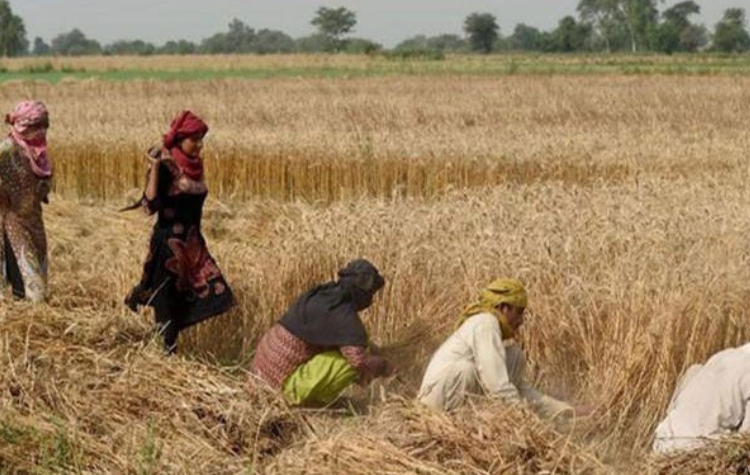(Kathmandu/Bangkok, 22 July 2022) – ‘We welcome the special message of the Prime Minister of Nepal to fully implement the Kamaya Labour (Prohibition) Act of 2001 and call on government agencies to implement inclusive and non-discriminatory social protection programmes to ensure the rehabilitation of the Harawa-Charawa,’ said the Asian Forum for Human Rights and Development (FORUM-ASIA) and the Community Self-Reliance Centre (CSRC) in a joint statement following a commemoration event on the 22nd anniversary of the Kamaiya Liberation.
The announcement made on 18 July called on relevant ministries to ensure the full implementation of the Kamaya Labour (Prohibition) Act 2001. The Act formally declares all forms of bonded labour as illegal.
While the Act should apply to all forms of bonded labour, there has been no such initiative or rehabilitation has been implemented for the Harawa-Charawa, a form of agricultural labour system in Madesh Province.[1]
‘Debt traps, unjust working conditions, discrimination, and years of systematic neglect by the Government have delayed much needed interventions for the Harawa-Charawa. This announcement must be complemented with effective rehabilitation programmes, land ownership on a priority basis, and gender-sensitive social protection mechanisms at the minimum,’ said CSRC.
In 2020, FORUM-ASIA and CSRC conducted a fact-finding mission in the Dhanusha District in Madesh Province, and produced a report the following year on the condition of the Harawa-Charawa, which analysed how their human rights are impacted by both poverty and climate change.[2] In light of the repeated violations of their human rights as well as growing exposure to the impact of the climate crisis, the report urged the federal and provincial authorities to de facto implement the statutory liberation of the Harawa-Charawa.
The report from FORUM-ASIA and CSRC has been instrumental in informing the visit to Nepal in December 2021 of the United Nations Special Rapporteur on extreme poverty and human rights, Professor Oliver De Schutter. After travelling to several districts, including Dhanusha, Professor De Schutter reported on the persistent issues of caste-based discrimination and unresolved land rights slowing down the rehabilitation of bonded labourers.
Concerned authorities and agencies, including provincial and local authorities, were also called by the Prime Minister to develop and implement special programs to ensure socio-economic rights of the Harawa-Charawa families.
‘We reiterate our recommendation to the Federal Government of Nepal to enforce provisions under the Prohibition Act of 2001 by declaring the repayment of loans and any bonds written or unwritten between landlords and bonded labourers void, and to ensure effective rehabilitation by abiding to the International Covenant on Economic, Social and Cultural Rights (ICESCR),’ said FORUM-ASIA.
‘Meaningful consultation between the Harawa-Charawa families and local government officials should be present in preparing rehabilitation plans. We call on the Government to provide land ownership and livelihood support to the Harawa-Charawa, especially women, for their holistic rehabilitation,’ said CSRC.
— END —
About FORUM-ASIA:
The Asian Forum for Human Rights and Development (FORUM-ASIA) is a network of 85 member organisations across 23 countries, mainly in Asia. Founded in 1991, FORUM-ASIA works to strengthen movements for human rights and sustainable development through research, advocacy, capacity development and solidarity actions in Asia and beyond. It has consultative status with the United Nations Economic and Social Council, and consultative relationship with the ASEAN Intergovernmental Commission on Human Rights. The FORUM-ASIA Secretariat is based in Bangkok, with offices in Jakarta, Geneva and Kathmandu.
About CSRC:
Community Self Reliance Centre (CSRC) established in March 1993 in Sindhupalchowk District is a social organization that has campaigned more than a quarter of a century for comprehensive agrarian reform and the land rights of working farmer and tillers. Through this time, CSRC has worked to organize and raise consciousness amongst those deprived of land rights, build public opinion in favor of progressive land reform, and conduct action research related to land and agrarian issues.
For further information, please contact:
- Development and Knowledge Management Programme, FORUM-ASIA, [email protected]
For media inquiries, please contact:
- Communications and Media Programme, FORUM-ASIA, [email protected]
- Executive Director of CSRC, [email protected]
[2] http://l.forum-asia.org/TiedHandsReport
**
For the PDF version of this statement, click here




